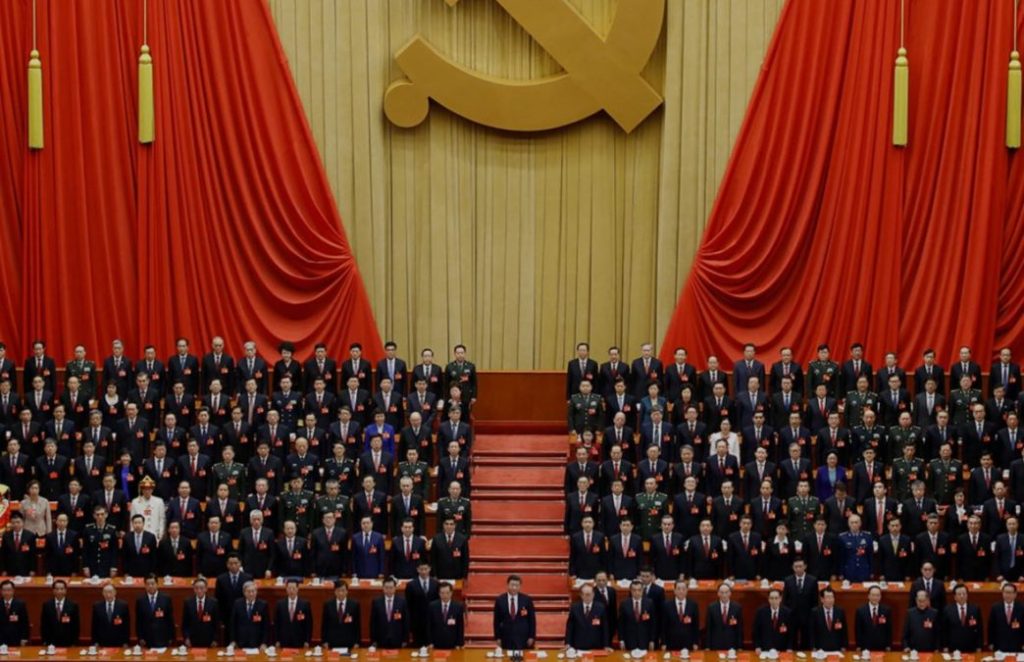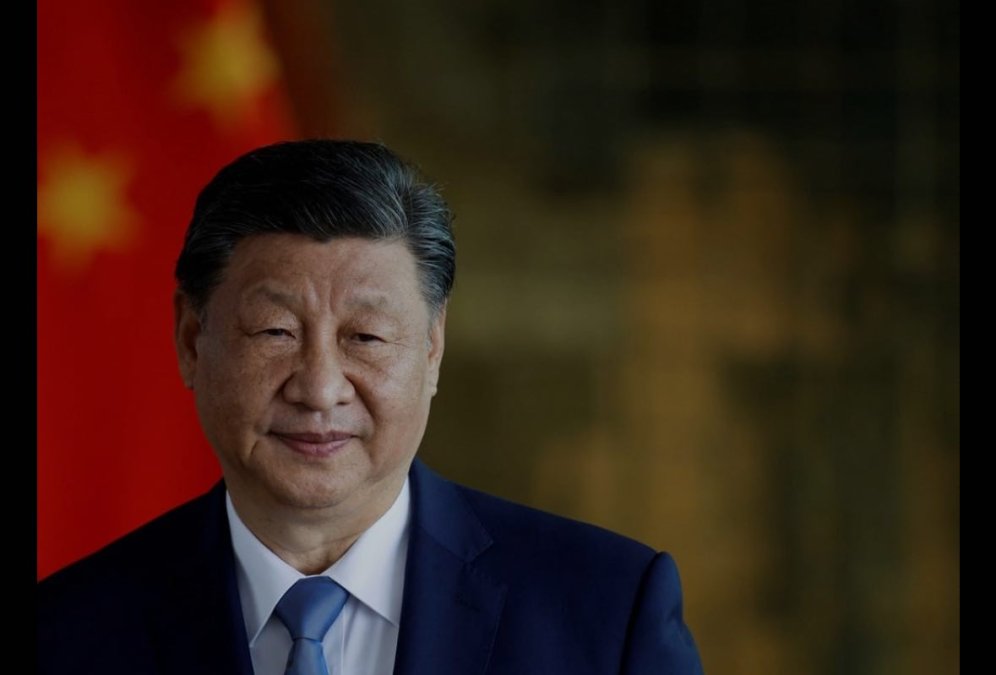China Against China
China Against China
According to Iran Gate News Agency, while the concentration of power in the hands of Xi Jinping has transformed China’s political order, the consequences of these changes extend beyond Beijing’s borders and cast a shadow over the global balance of power.
Analytical reviews indicate that Xi, in his effort to reform the legacy structures, has turned the power transition process in the Communist Party into an unprecedented challenge, while Washington, caught in internal crises and political discord, struggles to provide an effective response to this cohesive centralization.
The following report examines the internal developments of the Chinese Communist Party, the succession challenge in the Xi era, and Beijing leaders’ perception of the structural decline of the United States within the framework of great power competition.
Succession Challenge and Power Dynamics in the Xi Jinping Era
In the process of reforming China’s political structures, Xi Jinping, while addressing problems inherited from previous eras, has created new challenges and issues for himself and the Communist Party.
The most significant consequence of this process is the elimination of one of the most prominent achievements of the post-Mao era: institutionalizing the peaceful transfer of power. By abolishing the presidential term limit, Xi transformed the vice presidency from a practical stage for preparing a successor into a largely ceremonial role for retired officials. He also prevented other civilians from entering the party’s top military institution.
This decision eliminates the possibility of forming a support network in the military for a future successor and likely makes it difficult for any future leader to maintain power, potentially shortening their tenure.
Authoritarian regimes are usually vulnerable to succession crises. The experience of the Soviet Union showed that the country never effectively resolved this issue; leaders either died in office, were removed and purged, or, like Mikhail Gorbachev, led the system towards collapse.
The main challenge for Xi Jinping is how to cultivate a successor who can maintain stability after his departure from power without being a threat to his position during his lifetime.
Even if Xi introduces a potential successor at the next party congress in 2027, maintaining a balance between loyalty and independence will remain difficult. Party history also shows that before the Hu Jintao era, many potential successors were removed, detained, or sidelined before reaching the top of the power pyramid.

Despite the difficulty of this challenge, the likelihood of the Chinese Communist Party collapsing is low. This party has survived far more severe crises, including the Cultural Revolution and the Tiananmen events in 1989.
The more fundamental question is whether Xi’s centralization and reciprocal reforms have reduced the party’s capacity to learn from its mistakes. The history of the Chinese Communist Party is filled with costly and widespread mistakes, including the Great Leap Forward, which led to widespread famine between 1959 and 1962.
However, in the post-Mao era, the party managed to transform itself into a learning and adaptable institution. Although mistakes such as insufficient preparedness for the surge in cases after lifting COVID-19 restrictions still occur, the party rarely repeats its mistakes.
For example, in response to the trade war initiated by the Trump administration, Chinese leaders were initially caught off guard, but in his second term in 2025, they responded to new American tariffs with a set of pre-designed countermeasures.
The personalization of power in China can reduce the ability to correct errors, but Xi’s centralized structure has shown limited flexibility so far. Part of this is due to Xi’s family background; as the son of a revolutionary leader, he understands that those around him tend to say what pleases him.
Therefore, Xi has preferred to appoint individuals he trusts to key positions so they can provide real feedback within a cautious framework.
The limited and risky political space he has created paradoxically provides another opportunity for accurate assessments. Like other authoritarian leaders, Xi uses competition and mistrust among subordinates to extract real information.
Xi’s confidence in his reforms partly stems from his perception of the United States’ situation.
The inefficiency of American political institutions in performing basic tasks, including timely approval of the federal budget, is seen by Chinese leaders as a sign of structural weakness.
The Trump administration, similar to Xi, believed that executive power was too dispersed and made efforts to concentrate authority in the hands of the president.
However, this centralization in the United States operates contrary to its institutional structure, whereas in China it aligns with the functional logic of the Communist Party.
For this reason, while the concentration of power in Washington has led to political instability, in Beijing it has strengthened the system’s cohesion and resilience.
These trends have not gone unnoticed by Chinese leaders. Thinking within a Leninist framework, they view the United States as a nation on a path of decline.
Wang Huning, the party’s chief theorist over the past quarter-century, after visiting America in the 1980s, described the fundamental contradictions of American society in the book ‘America Against America’ and identified American individualism as the cause of internal crises.
Xi Jinping has also described the West in numerous speeches as trapped in materialism and spiritual poverty, considering his reforms as a response to these chronic ailments.
Chinese analysts cite numerous pieces of evidence to support this view. Since the end of the Cold War, the United States has faced inefficiency in almost every national crisis. The invasion of Iraq after September 11, the 2008 financial crisis, and the mismanagement of the COVID-19 pandemic have all weakened public trust and eroded America’s international credibility.
Despite these mistakes, the United States remains the world’s dominant power, but it increasingly relies on its structural legacy, which allows it to make mistakes that would have devastating consequences for other countries.
While discussions in Washington focus on the possibility of China reaching its peak power, Beijing analysts engage in a similar debate about the United States and reach aligned conclusions.
Official Chinese media describe America as suffering from hegemonic anxiety, a situation where Washington cannot come to terms with the reality of a multipolar world. Just as American analysts like Hal Brands see China as a power that might adopt aggressive behavior in response to potential decline, Chinese observers offer a similar analysis regarding America, believing that the United States will use any means to maintain its position.
During the Cold War, George Kennan warned that the loss of Europe’s confidence in democracy could weaken America’s confidence in its own system. Today, the reverse challenge exists: the decline in internal trust in American institutions may be the cause of the country’s failure to compete with China, not the result of it.
In contrast, Xi’s reciprocal reforms, despite political purges and economic crises such as the real estate slump, have not created a public trust crisis in China.
On the contrary, Xi has gained more confidence because he can point to tangible technological and industrial advancements.
He views his project as long-term and has remained immune to the rapid and unpredictable fluctuations characteristic of the American political system.
On the other hand, while some American political elites speak about China with Cold War rhetoric, there is little willingness to undertake difficult and costly reforms, such as rebuilding the industrial defense base and strengthening vital supply chains.
If this trend continues, the United States might move towards a kind of reverse Roosevelt strategy: speaking loudly about power while the real tools of power are diminishing.
In contrast, Xi Jinping, with a coherent and purposeful approach, seeks to strengthen China’s strategic position, while Washington’s policies are often contradictory and reactive. Ultimately, part of America’s failure to respond to its challenges stems from a misunderstanding of Xi Jinping’s nature and motivations.

